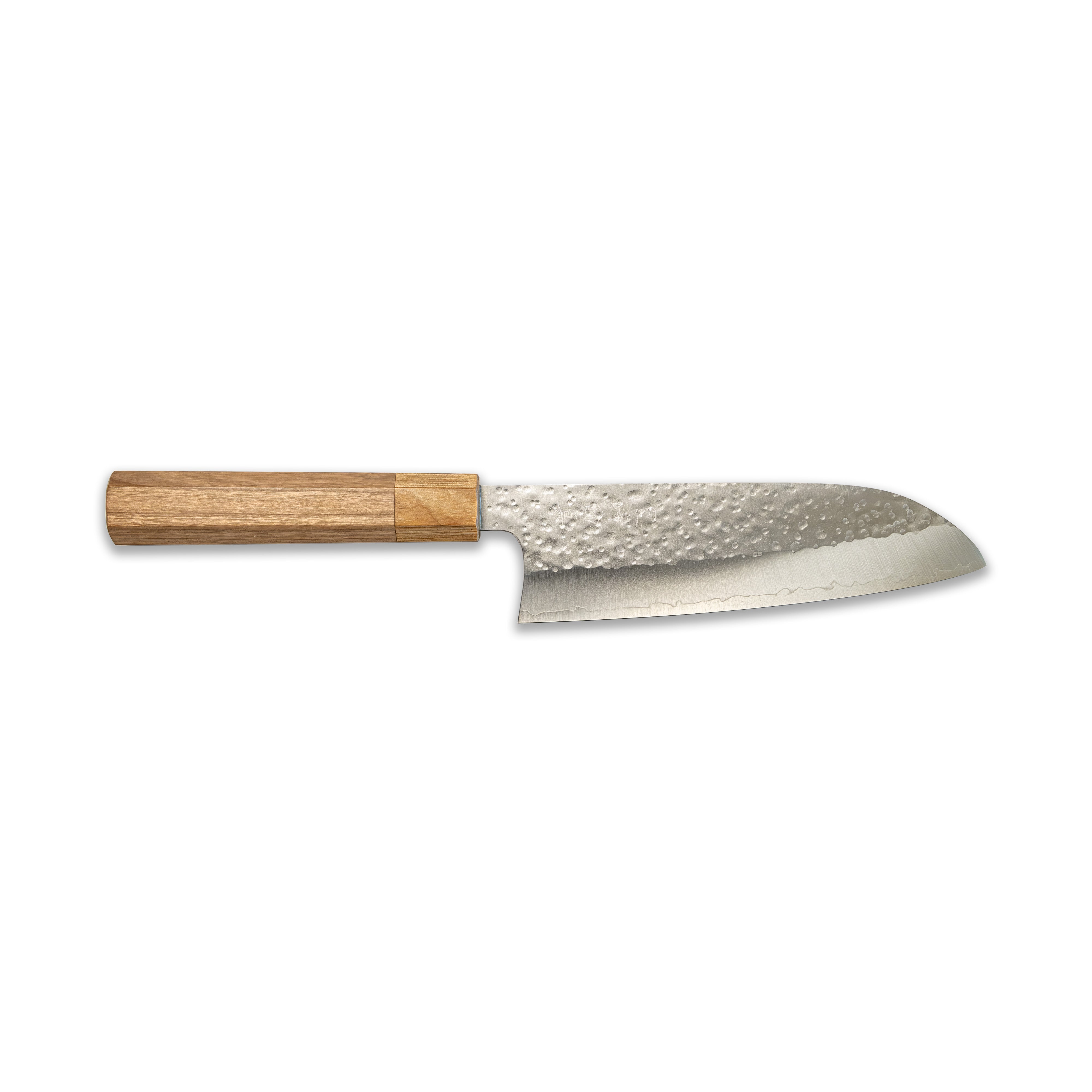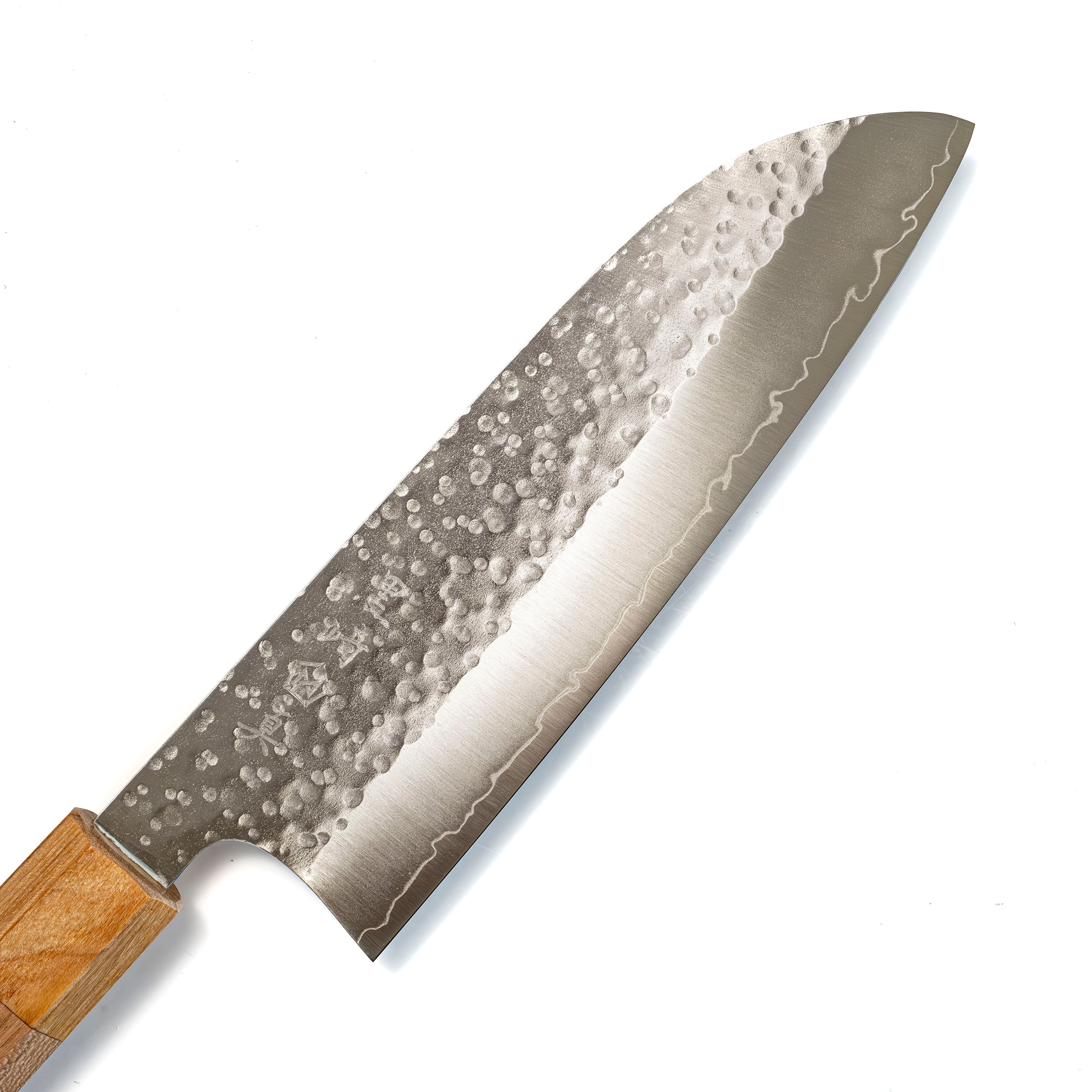Menu
- Choosing a selection results in a full page refresh.
















| Blade Length | 165 mm |
| Total Length | 305 mm |
| Steel | R2 (SG2) Powdered Steel |
| Handle | American Cherry |
| Ferrule | Blonde Pakka |
| Rockwell | 63-65 |
| Height Spine to heel | 48 mm |
| Width at Spine | 2 mm |
| Weight | 131 grams |
| Bevel | Double (50/50) |
Makoto Kurosaki
We're excited to have these knives in made by Makoto Kurosaki. Makoto Kurosaki trained as a sharpener and apprenticed under Hiroshi Kato-san, as part of Takefu Knife Village, based in Echizen city, Fukui prefecture, Japan. While Makoto is Yu Kurosaki’s older brother, he has his own shop separate from Yu's, and has sharpened several different lines from knife makers such as Yoshimi Kato and Takumi Ikeda, as well as Yu Kurosaki.
The “Style-K” line knives still have a great grind and geometry to them, they are slightly more robust than Yu's knives on the spine making them slightly less delicate. The R2 (SG2) core steel is one of our favorites at the shop for its great edge retention and surprising ease of sharpening for such a tough stainless. It also has a very fine and consistent grain structure as it is a powdered steel so it will benefit from being taken to a much higher grit stone than a more traditional stainless steel will. The fit and finish on these knives is also of a very high level with a perfectly smooth transition between the handle and ferrule, the joint between the tang and handle, and the rounding and polishing on the spine and choil.
The Takefu Knife Village is a cooperative workshop in the Echizen region of Japan. It is the home to a long list of blacksmiths that we work with and many young and upcoming apprentices learning the trade. The area has a 700 year long history of smithing with roots in agricultural tools turned cutlery powerhouse.
The Knife
Santoku translates to three virtues. Meat, fish, and vegetables, or slicing, dicing, and chopping. No matter what way you look at it, it implies the versatility of the knife. While you sacrifice some of the slicing capability of a larger gyuto, don't be fooled by its size, the santoku can get 99% of your kitchen tasks done without breaking a sweat, which is probably why its the most popular shape in Japanese home kitchens.
142 JAMES ST. S HAMILTON ON L8P3A2
MONDAY - SATURDAY :
11 AM to 6 PM
SUNDAY : CLOSED
195 NORSEMAN ST UNIT 14 ETOBICOKE ON M8Z0E9
MONDAY - SATURDAY :
11 AM to 6 PM
SUNDAY : CLOSED
© 2024, SHARP Knife Shop Powered by Shopify
